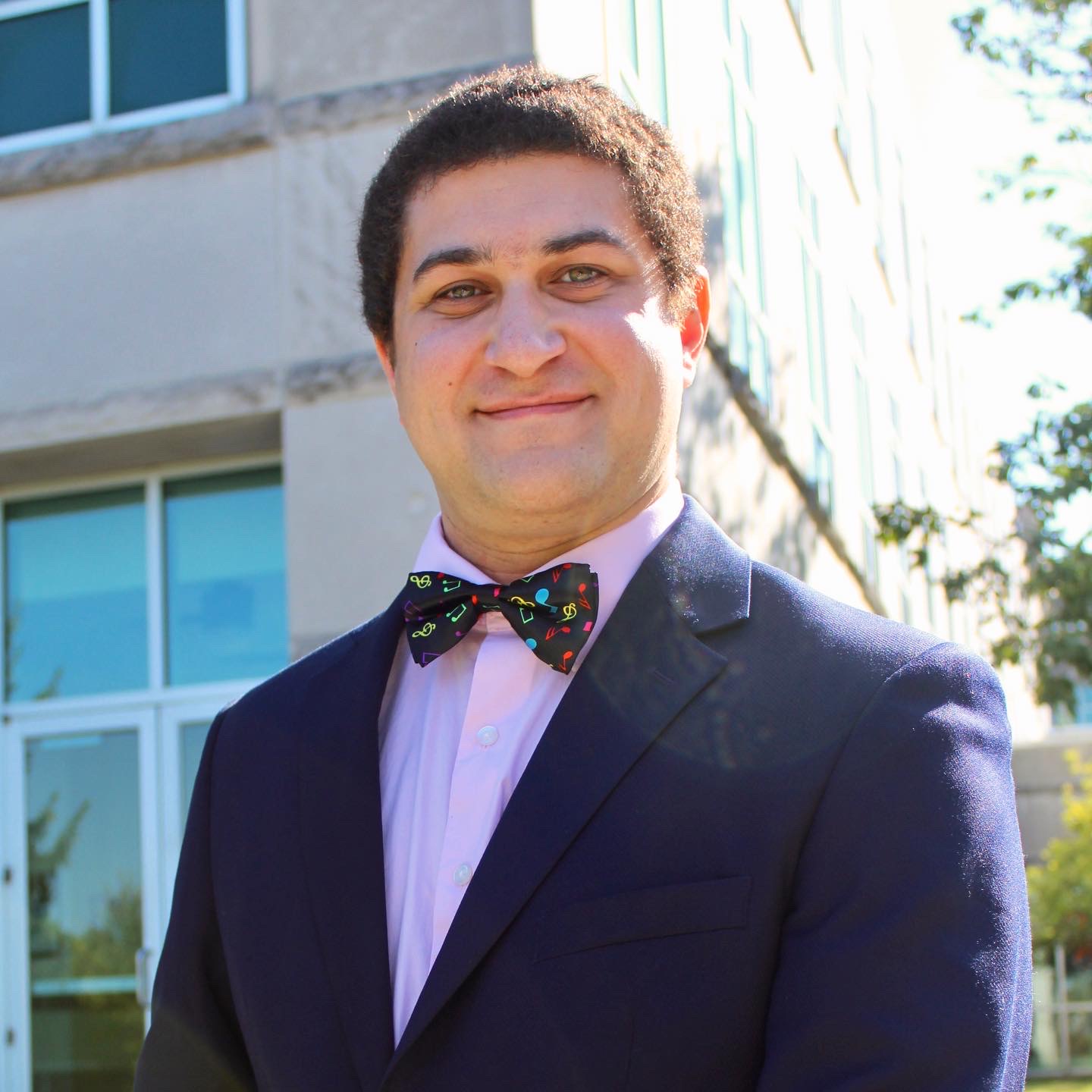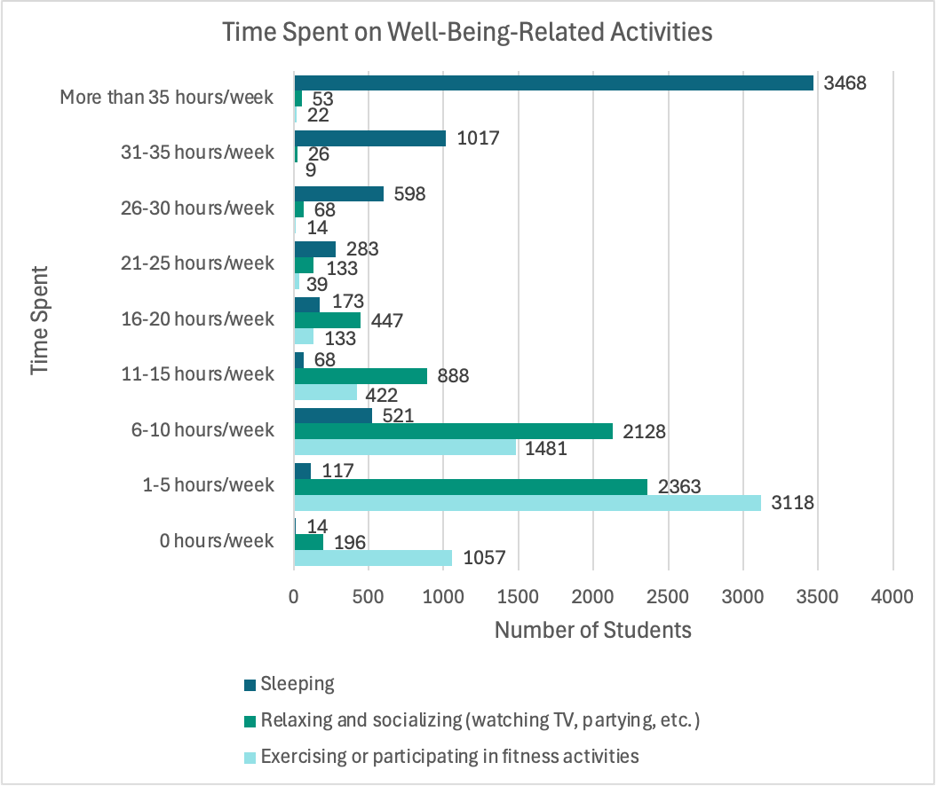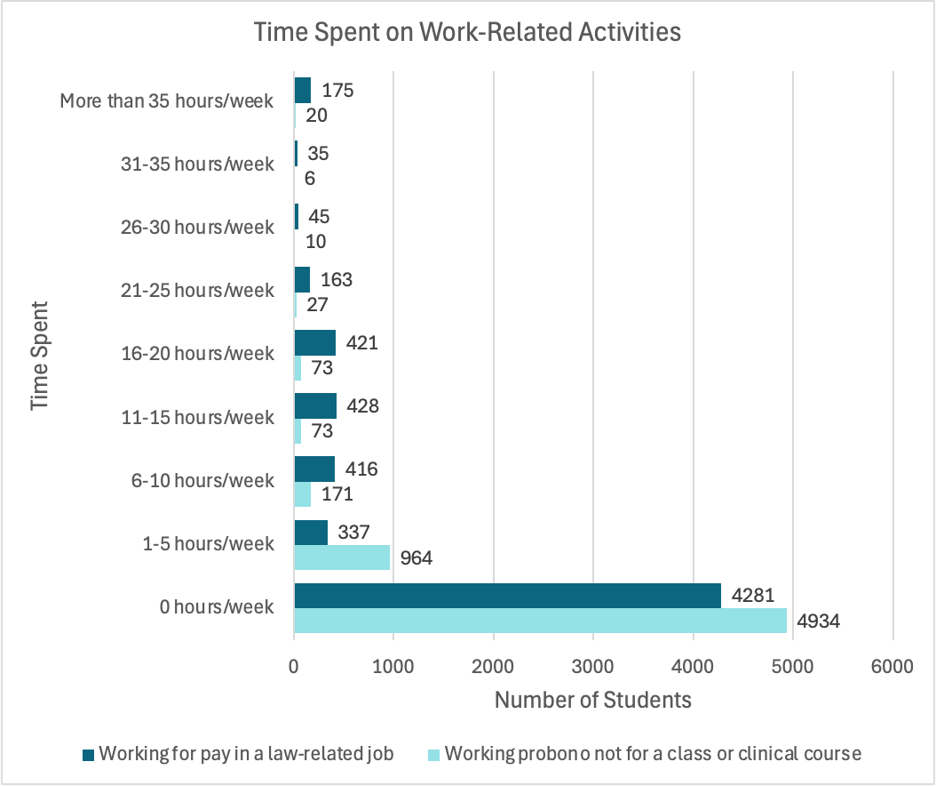Time Well Spent? The Role of School Environment in Law Student Work-Life Balance

Time Well Spent? The Role of School Environment in Law Student Work-Life Balance
Steven Feldman
LSSSE Graduate Assistant
Indiana University
In recent years, the well-being of law students has become a crucial focus for law schools (Todres, 2022). Students face enormous demands trying to balance rigorous academic demands with their personal life and professional responsibilities. Outside of the classroom, students often engage in work-related activities like paid legal work and pro bono service. Yet they also must find ways of engaging in selfcare in order to maintain their health and well-being while in law school. By examining the relationship between students’ time spent on various activities and their views on their law school environment, we can gain insight into which factors might help or hinder their well-being.


Using five work- and well-being-related items along with ten environment items from the Law School Survey of Student Engagement, we can see some important correlations between time spent and students’ perceptions of their school environment. For example, the more that students believe their law school emphasizes spending significant amounts of time studying and on academic work, the less time they spend on well-being activities and working outside of the classroom. On the flip side, the more that students believe their law school emphasizes helping students cope with non-academic responsibilities, providing support students need to thrive socially, and etc., the more time students spend on things like exercising and socializing. This suggests that when law schools emphasize a culture of support and well-being, students are potentially more likely to engage in activities that can improve their well-being.
Interestingly, work-related activities had some potentially surprising correlations. For example, the more that students believe their law school emphasizes encouraging the ethical practice of the law, the less time they spend working pro bono and working for pay in a law-related job. Additionally, the more that students believe their law school emphasizes providing the support you need to succeed in your employment search, the less time they spend working for pay in a law-related job. Although these correlations don’t imply causation, they still warrant future investigation.
| Correlations | |||||
| To what extent does your law school emphasize each of the following? | Exercising or participating in fitness activities | Relaxing and socializing (watching TV, partying, etc.) | Sleeping | Working probono not for a class or clinical course | Working for pay in a law-related job |
| Spending significant amounts of time studying and on academic work | -.031* | -.113** | -.044** | -.037** | -.063** |
| Encouraging the ethical practice of the law | .029* | -.041** | -.036** | ||
| Providing the support you need to help you succeed academically | .045** | -.076** | |||
| Encouraging contact among students from different economic, social, sexual orientation, and racial or ethnic backgrounds | .077** | .042** | .029* | ||
| Providing the support you need to succeed in your employment search | .031* | .028* | -.070** | ||
| Helping you cope with your non-academic responsibilities (work, family, etc.) | .104** | .052** | .044** | -.032* | |
| Providing the support you need to thrive socially | .107** | .058** | .041** | -.056** | |
| Attending campus events and activities (special speakers, cultural events, symposia, etc.) | .044** | .049** | -.101** | ||
| Providing the financial counseling you need to afford your education | .082** | -.032* | -.061** | ||
| Using technology in academic work | .042** | .058** | -.052** | ||
| Note: *p < .05, **p < .01 | |||||
These overall findings suggest that a holistic approach to education that encompasses both academic and non-academic responsibilities may further enhance students’ overall well-being and work-life balance. Understanding these relationships can help law schools consider how they might allocate resources to support students balancing work, social, personal, and academic commitments.
References
Todres, J. (2022). Work-life balance and the need to give law students a break. University of Pittsburgh Law Review Online, 83, 1–13.

